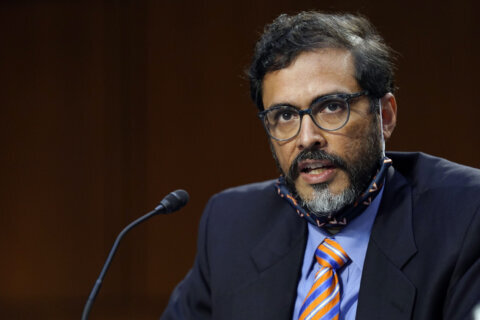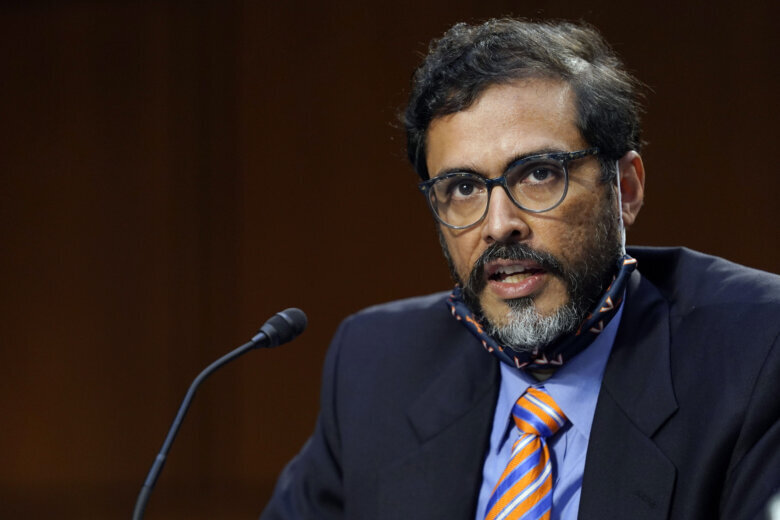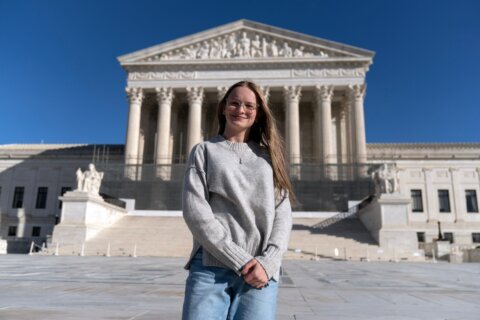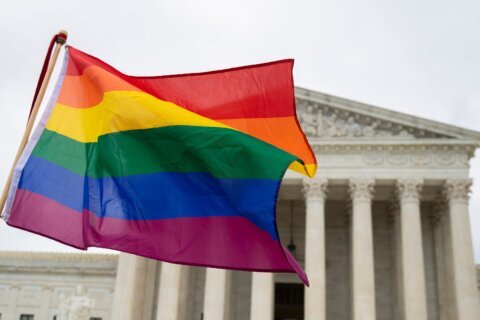The Supreme Court ruled Monday that former presidents are immune from prosecution for what’s described as “official acts” while in office, but not for “unofficial acts.”

The justices did not distinguish whether the crimes former President Donald Trump is accused of in his upcoming criminal trials fall under one category or the other, leaving that up to to the lower courts to decide first.
However, it’s highly unlikely that Trump’s election interference trial in D.C. connected to the Jan. 6, 2021 attack on the Capitol would even start until after the November election.
Saikrishna Prakash is a James Monroe Distinguished Professor of Law at the University of Virginia Law School. He’s a former clerk for Justice Clarence Thomas and has written extensively about whether presidents can be prosecuted.
Prakash spoke with WTOP anchors Shawn Anderson and Anne Kramer about the reasoning behind the majority’s decision to separate “official” from “unofficial” acts.
Listen to the full interview, or read the transcript below. The transcript has been lightly edited for clarity.
Saikrishna Prakash: I think what the court did is looked at its prior case law and prior case law had found immunity from civil prosecutions arising out of those official acts, and then found an executive privilege to protect presidential documents. These were all based on sort of structural inferences what the Constitution said — nothing expressly. But the court nonetheless found various immunities and protections. And that’s what the court did here. They kind of extended those cases.
The reasoning was that if a president is subject to prosecution for his constitutional acts, you won’t be able to exercise those powers completely and with confidence that they won’t result in a prosecution after the fact. So the court said for constitutional acts, the president’s completely immune; for official acts, he’s at least presumptively immune, and the government would have to overcome that presumption. And so it’s based on nothing explicitly in the text of the Constitution. And in that way, it’s not different than what the court has done before except, obviously, an expansion of those previous rulings.
Shawn Anderson: Opponents, of course, are floored by this ruling. They believe it leaves a lot of room for interpretation of what a president could get away with. Liberal Justice Sonia Sotomayor wrote and delivered a furious dissent here. Her quote: “The President is now a king above the law.” You once wrote a book titled “Imperial from the Beginning: The Constitution of the Original Executive.” So does the justice have a point about the president becoming a king?
Saikrishna Prakash: Well, I think I mainly agree with the dissent on this. I don’t believe the president has any official immunity from prosecution arising out of his or her official acts, and I’ve been critical of the court’s jurisprudence with respect to civil immunity, so I think that she has it right.
Not sure I agree with the rhetoric, but I don’t think the president has immunity. Does this make the president a king? I don’t think I would say that. But one can agree with the overall conclusion, even if one doesn’t agree with all the particulars. I think her concern is a legitimate one, which is that presidents will take actions and then not be found liable criminally for them and not be found civilly liable, which sort of just leaves impeachment and of course, impeachment is very hard to successfully conclude in the modern era. It’s easy to impeach a president, it’s very hard to convict them because of the two-thirds requirement. And so the court’s opinions in this area have the cumulative effect of strengthening the presidency by diminishing its accountability to the criminal process and the civil process.
I think, from the majority’s perspective, to be fair to them, they’re looking at this and thinking every Tom, Dick and Harry prosecutor will go after the president, and we’ll have presidents going after successors once they become president. And of course, if Donald Trump succeeds, and had there been no immunity for the president’s official acts, then he might have prosecuted Joe Biden for them as well. So there are intuitions and good points made on both sides, even as I ultimately agree with Justice Sotomayor’s overall conclusion
Get breaking news and daily headlines delivered to your email inbox by signing up here.
© 2024 WTOP. All Rights Reserved. This website is not intended for users located within the European Economic Area.







